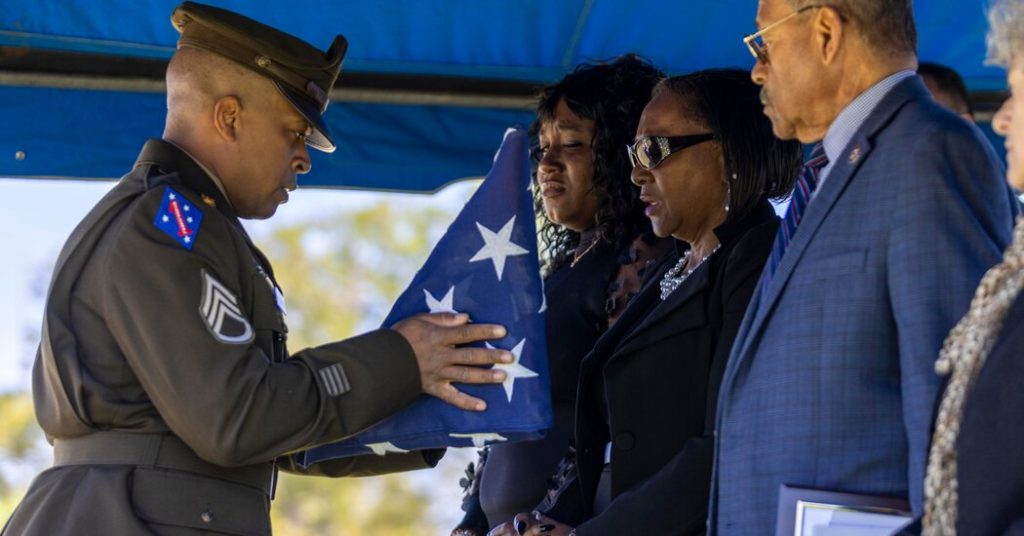The article discusses the story of Pvt. Albert King, who was killed by a white military police officer in a racially motivated incident in 1941. For 83 years, King was buried in an unmarked grave near the military base where he was killed, and his death was unjustly ruled as misconduct by the Army. However, in 2022, after a legal brief and investigative reporting revealed the truth, the Army corrected its record and reinstated the original decision that King died in the line of duty. This led to the unveiling of a new military funeral for King and a long-overdue recognition of his sacrifice.
The memorial for Pvt. Albert King is part of the Army’s ongoing efforts to address past injustices and racial discrimination. This includes renaming bases originally named for Confederate generals, overturning wrongful convictions of Black soldiers, and installing memorials for victims of racial violence. The Army has expressed a commitment to honoring the legacies of all soldiers, especially when errors or injustices have occurred, as was the case with Pvt. Albert King.
Helen Russell, King’s cousin and primary advocate, played a crucial role in securing the military memorial for her cousin. Despite never meeting King, she felt connected to him through their family lineage and was determined to seek justice for him. With the help of lawyers and advocacy groups, Russell’s efforts eventually gained traction, culminating in the recognition of King’s sacrifice with a military funeral attended by top leaders from Fort Moore and Representative Sanford Bishop, who spoke at King’s grave.
The inscription on Pvt. King’s headstone, “For my beloved cousin I fought the fight,” reflects the collective effort by citizens, soldiers, family members, advocates, lawyers, and journalists to seek justice for King over the years. The ceremony also highlighted the role of individuals like Dr. Thomas Brewer, a Black physician who alerted authorities to King’s case and was later killed in a racial attack. This memorial serves as a reminder of the ongoing fight for justice and the importance of preserving the memory of those who have faced racial violence and discrimination.
Representative Sanford Bishop, who identified himself as a descendant of slaves and a child of Jim Crow, spoke emotionally at King’s grave, emphasizing that after 83 years, justice has finally been served. He acknowledged the sacrifices and efforts of those who spoke up for King, including Judge William H. Hastie, who advocated for Black service members in the 1940s. The memorial ceremony also marked a renewed commitment to ensure that Pvt. Albert King’s story is included in school curricula, ensuring that future generations learn about his legacy and the fight for justice.
The story of Pvt. Albert King represents a significant moment in the ongoing struggle for racial equality and justice in the United States. Through the collective efforts of advocates, family members, lawyers, and community leaders, King’s sacrifice has been recognized, and his legacy honored. The unveiling of the military funeral and memorial for Pvt. King serves as a reminder of the importance of confronting past injustices and ensuring that the stories of individuals who have faced racial discrimination are preserved and shared for future generations to learn from.


